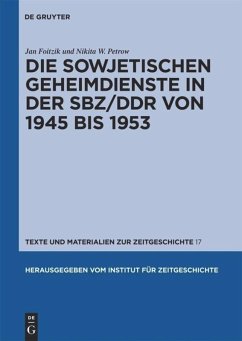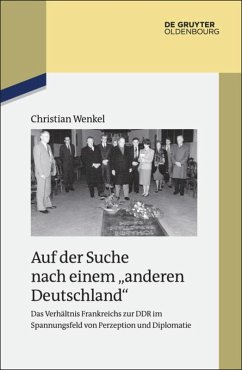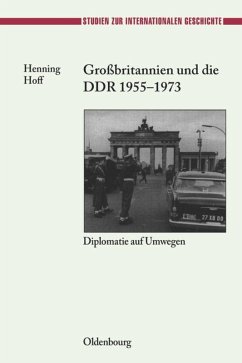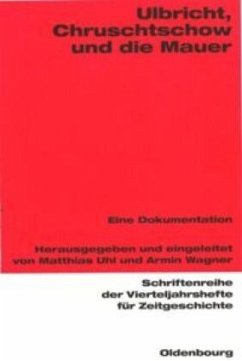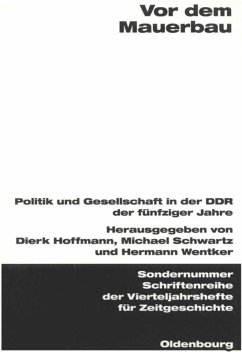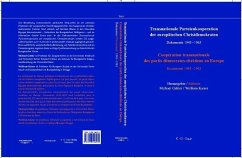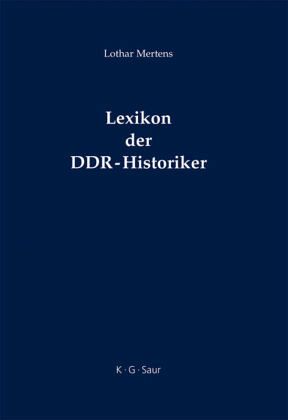
Lexikon der DDR-Historiker
Biographien und Bibliographien zu den Geschichtswissenschaftlern aus der Deutschen Demokratischen Republik

PAYBACK Punkte
0 °P sammeln!
Even today little information is available on GDR scholars, whilst general biographical reference works are altogether absent. The last new entries can be found in the Kürschners Deutscher Gelehrten-Kalender (Kürschner's Almanac of German Scholars) from the year 1961. After that, scholars were forbidden from collaborating with such works by the state. The Lexikon der DDR-Historiker (Encyclopaedia of GDR Historians) offers the first extensive overview of biographies of the historians of the whole GDR era. Included are all persons who taught as professors and lecturers from the founding of the GDR state in October 1949 and afterwards up to 1990. Details of the people covered have been updated past the end of the GDR. More than 1,100 biographical entries provide detailed information about their academic careers. In addition it records the qualifying texts (dissertation/habilitation) and articles in the most important history periodical of the GDR, the â??Zeitschrift für Geschichtswissenschaftâ? (Journal of History). Besides references to necrologies, eulogies and honours, the most important official accolades are also listed. The extensive scholarly introduction furnishes a differentiated view of the development of history as a discipline in the GDR and the people responsible for it. Thoroughly researched tables provide information about very different issues, such as which GDR history professors were former NSDAP members, those awarded the Karl-Marx-Orden (Order of Karl Marx) and other honours, or (where known) the IMs (unofficial collaborators) of the Ministerium für Staatssicherheit (Ministry of State Security). The Bielefeld social historian Hans-Ulrich Wehler judged that the majority of GDR historians allowed themselves â??for decades to be prostituted as spiritual bailiffs of a late-Stalinist partyâ?. The Lexikon der DDR-Historiker contributes to the illumination of the possible scope, beyond simple blind obedience to whatever line the party took: the strategies ranged from conforming and self-censorship to an ever more dangerous withdrawal into niches. This becomes apparent more than anywhere in the academicâ??s research subjects and publications listed here. The Lexikon der DDR-Historiker is unique among research literature on the GDR and closes a gap in biographical research: an elementary contribution to the continuing analysis of GDR history and German academic history.
Das Lexikon der DDR-Historiker bietet erstmals einen umfassenden Überblick über die Biographien der Historiker der gesamten DDR-Zeit. Aufgenommen wurden alle Personen, die zum Zeitpunkt der Staatsgründung der DDR im Oktober 1949 und danach bis 1990 als Professoren oder Dozenten lehrten. Die Angaben sind über das Ende der DDR hinaus aktualisiert. Mehr als 1.100 biographische Einträge informieren ausführlich über den wissenschaftlichen Werdegang. Des Weiteren sind die Qualifikationsschriften (Dissertation/Habilitation) sowie die Aufsätze im bedeutendsten historischen Periodikum der DDR aufgeführt, der Zeitschrift für Geschichtswissenschaft. Neben Hinweisen zu Nekrologen, Gratulationen und Ehrungen sind auch die wichtigsten staatlichen Auszeichnungen aufgelistet.






